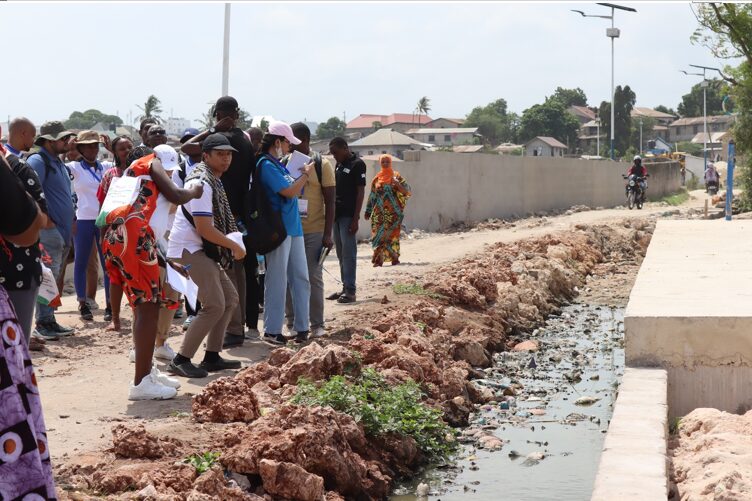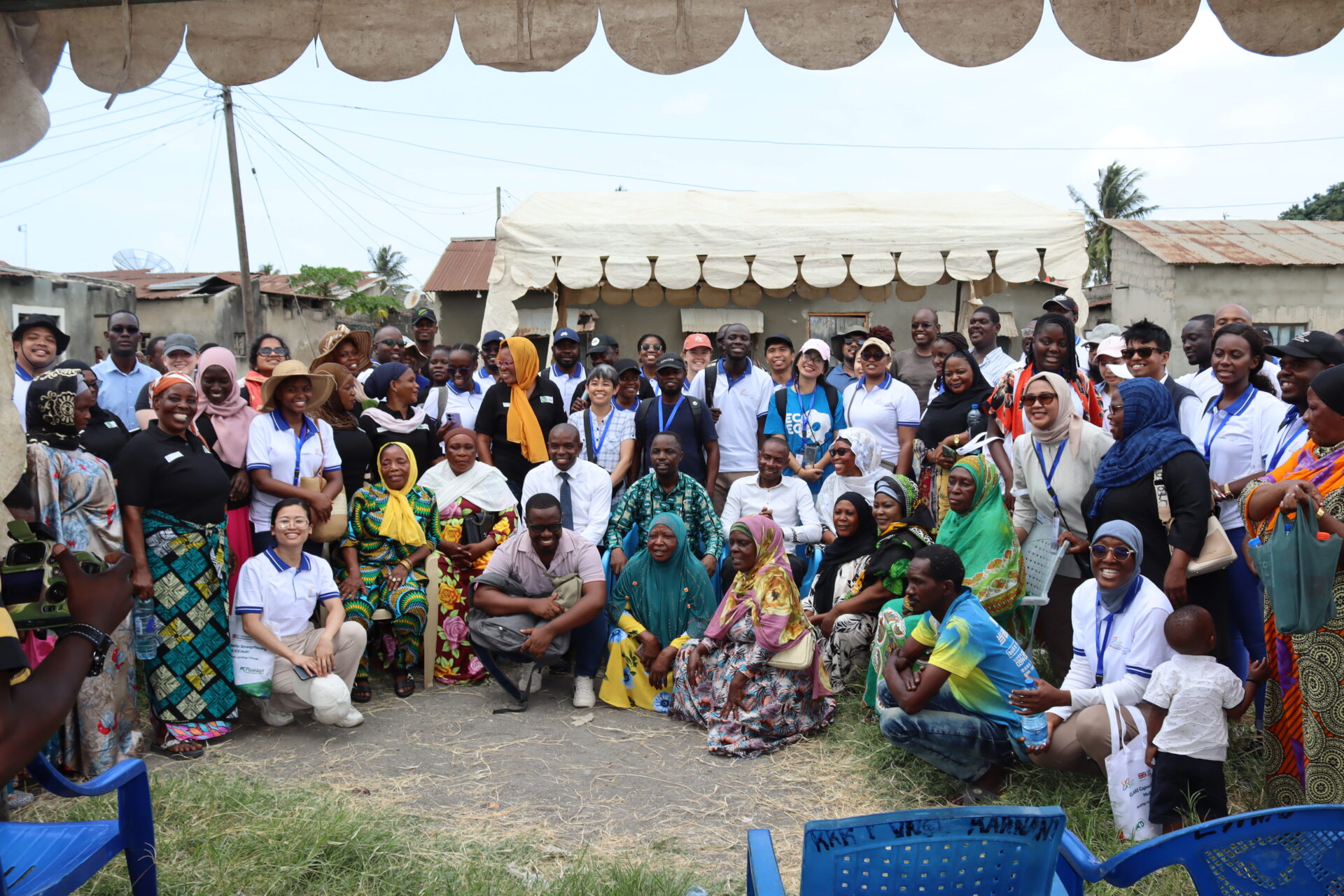Enhancing Adaptation and Resilience Capacities: Lessons from the CLARE CS Hub Seasonal School Mini Project
/
By Tamara Nyirenda-Jumbe & Lisa Manya
In the face of accelerating climate impacts, enhancing adaptation and resilience capacities remains a critical objective for researchers, practitioners, and communities. As extreme weather events, shifting climate patterns, and deepening vulnerabilities become more common, building the capacity to respond in adaptive and transformative ways is more important than ever (IPCC, 2023). One initiative that provides useful insights into how these capacities can be developed is the recent CLARE Capacity Strengthening (CS) Hub Seasonal School, held in Dar es Salaam, Tanzania.
The Seasonal School brought together Early Career Researchers (ECRs) from across 22 CLARE-supported projects for a week-long immersive learning experience under the theme “Critical Thinking and Collaborative Research.” One of the most impactful components of the programme was the week-long Mini Project, which offered participants a unique, hands-on opportunity to apply action-research tools and frameworks to real-world climate challenges in informal urban settlements.
Mini Project: Bridging Theory and Practice
Strengthening capacities goes beyond knowledge acquisition and transfer, it is about cultivating adaptive mindsets and applying knowledge in meaningful, locally grounded ways (Asensio et al., 2022). The Mini Project was designed to help participants move beyond theoretical knowledge and actively engage with the principles of inclusive, participatory, and ethical research. ECRs were grouped into multidisciplinary teams and tasked with conducting a simplified climate risk and vulnerability assessment using a suite of action-research methods. These included participatory GIS, transect walks, and Photovoice, which were chosen for their ability to generate context-sensitive and locally grounded data (Given, 2008; Kleih et al., 2022; Lopez & Whitehead, 2013)

Photo Credit: Fiona Makayo, African Centre for Technology Studies
Each day took the participants through the data collection process, from designing data collection tools to sharing findings. The assessments for this were carried out in Mji Mpya and Vingunguti, two informal settlements in Dar es Salaam, in collaboration with the Centre for Community Initiatives (CCI). These locations are highly vulnerable to climate-related risks such as flooding, heat stress, and waste management challenges. Participants engaged with community members, local leaders, and project teams to understand how these risks manifest in daily life and how local responses are shaped by factors such as gender, infrastructure access, and socio-economic conditions.
Building Core Capacities through Action Research
The Mini Project highlighted several ways that adaptation and resilience capacities can be enhanced:
- Participatory and Inclusive Research: Engaging directly with communities ensured that the research process was grounded in local realities. Tools like Photovoice enabled the researchers and the community to articulate the community’s experiences through imagery, giving voice to issues that are often overlooked. Such inclusive approaches demonstrate the importance of modalities in shaping effective capacity strengthening in climate research. This participatory approach fosters trust, mutual learning, and the co-production of knowledge (Poto et al., 2025).
- Ethical Considerations and Informed Consent: Participants were encouraged to reflect on the ethics of data collection, particularly in post-crisis or highly vulnerable contexts. Scenarios discussed during the school challenged them to think critically about power dynamics, voluntary participation, and culturally appropriate communication. This cultivated ethical awareness, empathy and soft skills such as active listening, elements crucial to developing well-rounded A&R capacities.
- Multidisciplinary and Collaborative Problem Solving: By working in interdisciplinary teams, ECRs were exposed to diverse perspectives and skill sets. This collaboration enabled them to design more comprehensive assessments that took into account both environmental and social dimensions of vulnerability. These interactions mirror the systems-level approach to capacity strengthening where individuals, organisations, and systems must align to enable transformative change (Hagelsteen et al., 2021).
“The seasonal school enlightened me on the effectiveness of collaboration in order to have impactful research.” – Edwin Tadeyo, Meterologist & Researcher, REPRESA Project
- Real-time Application of Tools: Applying tools like participatory GIS in a live setting helped participants understand both the potential and the limitations of various methods. For example, spatial mapping exercises allowed them to identify climate hotspots and discuss adaptive responses, while also confronting challenges such as limited data availability or varying levels of digital literacy among participants.
- Feedback and Adaptive Learning: After completing their fieldwork, participants presented their findings and received feedback from peers and facilitators. This created a loop of reflection and learning, reinforcing the importance of being responsive and iterative in research design. Such processes help build both technical expertise and softer, emotion based capacities.

Photo Credit: Fiona Makayoto, African Centre for Technology Studies
Implications for Scaling Up Resilience Work
“Overall, the entire experience at the Seasonal School gave validation to my actions within our research. It helped me to feel more confident with what I’m doing in RURBANISE as it deepened my understanding about research processes and my role in it knowing that I am on the right track.” – Emelyn ‘Emz’ Bermundo, Co-PI, RURBANISE
What the Mini Project demonstrated is that enhancing adaptation and resilience capacities is not just about increasing technical knowledge. It is equally about fostering critical thinking, ethical awareness, collaboration, and a deep understanding of context. These soft skills are often underemphasized in traditional research training but are essential for meaningful impact in climate adaptation efforts.
Furthermore, embedding such experiential learning into capacity-strengthening programmes provides ECRs with the confidence and competence to navigate complex climate challenges. It also supports the development of new roles, such as climate adaptation knowledge and innovation brokerswho serve as vital connectors between knowledge producers and users. As these researchers move into policy, practice, and further academic roles, they carry with them the tools to promote inclusive, locally informed, and ethically sound adaptation strategies.
In a world where climate risks are increasingly complex and intersectional, strengthening resilience cannot be achieved in isolation. It requires building communities of practice that value co-creation, inclusion, and continuous learning. The Seasonal School’s Mini Project is a compelling example of how these principles can be put into action, and how they can shape the next generation of researchers driving climate adaptation forward.
References
Asensio, J. C., Blasquier, D., & Sedemund, J. (2022). Strengthening Capacity for Climate Action in Developing Countries: Overview and Recommendations. In OECD Development Co-operation Working Papers (Issue No. 105). https://www.oecd-ilibrary.org/docserver/0481c16a-en.pdf?expires=1707462113&id=id&accname=guest&checksum=1DD579277F6D31FEC32E2851A8AEE5AA
Given, L. (2008). The SAGE Encyclopedia of Qualitative Research Methods. SAGE Publications, Inc. https://doi.org/10.4135/9781412963909
Hagelsteen, M., Becker, P., & Abrahamsson, M. (2021). Troubling partnerships: Perspectives from the receiving end of capacity development. International Journal of Disaster Risk Reduction, 59. https://doi.org/10.1016/J.IJDRR.2021.102231
IPCC. (2023). Climate Change 2023: Synthesis Report. Contribution of Working Groups I, II and III to the Sixth Assessment Report of the Intergovernmental Panel on Climate Change [Core Writing Team; H. Lee and J. Romero (eds.)]. In H. Lee & J. Romero (Eds.), Intergovernmental Panel on Climate Change, 2023. IPCC. https://doi.org/10.59327/IPCC/AR6-9789291691647.
Kleih, A. K., Lehberger, M., & Sparke, K. (2022). Using Photographs in Mixed Methods Research: An Illustration Integrating Quantitative and Qualitative Analyses from Consumer Research. Journal of Mixed Methods Research, 16(4), 438–457. https://doi.org/10.1177/15586898211056748/ASSET/29EF1635-20FF-4EA0-8EFD-97D3A118F1B7/ASSETS/IMAGES/LARGE/10.1177_15586898211056748-FIG5.JPG
Lopez, V., & Whitehead, D. (2013). Sampling data and data collection in qualitative research. In Nursing & Midwifery Research: Methods and Appraisal for Evidence-Based Practice (4th ed., pp. 123–140). Elsevier Mosby. https://researchnow.flinders.edu.au/en/publications/sampling-data-and-data-collection-in-qualitative-research
Poto, M. P., Hayden-Nygren, J., & Urteaga-Crovetto, P. (2025). Effective participation in a sustainability transition that leaves no one behind. Environmental Science and Policy, 165. https://doi.org/10.1016/j.envsci.2025.104001
Categories
Countries
CLARE Pillars
CLARE Themes
CLARE Topics


